- Home
- Jane Godman
Echoes in the Darkness Page 2
Echoes in the Darkness Read online
Page 2
Eddie arranged for our baggage to be taken on ahead to the Harbour House Hotel. When we entered this bustling establishment, I was considerably cheered by the bright, elegant furnishings and, most importantly of all, the welcoming warmth of a crackling fire. I was also faintly surprised at the eagerness of the staff to ensure our needs were met. The manager himself came out of his office to greet us, which seemed a somewhat excessive courtesy to extend to a struggling artist and his foreign fiancée. We were escorted to our suite, which comprised a sitting room with two bedrooms leading from it and a well-equipped bathroom. The furnishings were old-fashioned but expensive, and I untied the ribbons of my bonnet, gazing around me with wide-eyed astonishment.
“Eddie, are you sure we can afford this place?” I asked. He was more than audacious enough, I knew, to indulge to the full in all the luxury the hotel had to offer and then dash off at dawn without paying. A prison cell loomed. “They seem to think we are important guests.”
“Ah,” Eddie said with his irrepressible grin. “There is a reason for that, Dita. Something I keep forgetting to mention.” I raised my brows in a silent question. “My father is the Earl of Athal and, as his oldest son, I am the heir to the title and a substantial fortune. Actually, I already have quite a lot of money of my own. I don’t know why it is, but those things often tend to impress people.”
We dined in the hotel’s restaurant and, despite the season, it was a busy night. I caught a glimpse of my reflection in the huge mirrors that lined one wall and knew that the rosy hue of my velvet gown suited the creaminess of my skin. The light from a dozen chandeliers lent golden highlights to my rich chestnut hair, which was piled high with loose curls framing my face. Eddie had already raised a mocking brow at the young waiter who blushed and stammered when he spoke to me. Many other admiring glances were directed my way. These, together with Eddie’s nonchalant, brooding good looks, confirmed that we were easily the most glamorous couple in the vast room.
“They say if you fall in love in Paris, your heart will remain forever there,” Eddie said. He sat back in his chair, twirling the amber brandy around in his glass while he studied my face. “What about you, Dita? Did you leave your heart behind in the city of light and love?”
I remained silent. I wanted to reassure him, and perhaps myself, that no part of me could be claimed by Paris. But, if I said that, I’d have been lying. The events of one drizzling never-to-be-forgotten night had made sure of that forever. But there was no point in repining. Memories were all that remained of that time now, so instead I answered him with a question of my own. “You are the poet, Eddie. Doesn’t your soul slumber in Paris?”
His laugh was a short, harsh bark. “My soul will never find a resting place.” Accustomed as I was to his dark moods, a strange sense of foreboding assailed me then.
When dinner was over, we bade each other a formal goodnight and went to our separate rooms. I heaved a sigh of relief at this arrangement, which left our platonic status unchanged. I wasn’t sure whether Eddie wanted to make our pretended love affair a reality. And I didn’t know how I would feel should he attempt to change things between us. Of course I had speculated about what it would be like with him. He was devastatingly attractive, after all. But I worried that, if we slept together, our friendship would be at an end. Another part of me was slightly bemused that, apart from that one wild attempt when we decided on this betrothal, he had never attempted to make love to me.
I was brushing out the long length of my hair, clad only in my nightdress, when the door to my room opened and Eddie paused on the doorstep, watching me. It was immediately obvious that I was about to find out how I would react to the suggestion of a new relationship. With a determined look on his face, he trod across the room toward me. Rising from my seat at the dressing table, I faced him, and he caught hold of one long strand of my hair. Winding it around his hand, he drew me closer.
“You are so beautiful, Dita,” he murmured. “If anyone can make me forget…”
It had been so long since I’d felt a man’s arms around me. I needed that comfort more than I had known. I lifted my face to meet Eddie’s kiss. His lips were gentle at first, and I shuddered with pleasure. My own lips parted with a little moan. Suddenly, shockingly, Eddie was tearing at the neckline of my thin cotton gown. His tongue was hard and intrusive, forcing my mouth wider as his hand grabbed my breast, his fingers digging painfully into the tender flesh. Then, just as quickly as the onslaught had begun, he stopped. His breathing was fast and hard. Resting his cheek against the top of my head, he murmured softly, “Forgive me, Dita. I’m a brute. Your friendship is the best thing I have, and I don’t deserve you.” Gently, he gathered the torn bodice of my nightdress around my shoulders and dropped a light kiss on my cheek.
“Can I stay here with you? I just want to be close to you, nothing more,” he asked.
I nodded. He slept in my arms that night, but his dreams were not easy. I watched his face as the dawn light touched it and wondered what horrors tortured him.
Chapter Two
We accomplished most of our remaining journey by rail and in silence. Eddie was not inclined to indulge me by enacting the role of tour guide, so I was left to view the contrasts between the dour industrial landscape and the majestic beauty of the countryside. Glimpses of London when we changed trains did nothing to inspire me. The miserable weather seemed to affect the national psyche, and everyone I encountered appeared hurried or forlorn. The bleak look on Eddie’s face was perfectly in tune with the weather, and both deepened in intensity with every mile we covered. We were met at the station in Wadebridge by a carriage bearing a crest of gold stars and a flowing Latin inscription. As this vehicle left the main post road and trundled onto rutted tracks, the Eddie Jago I knew was gone. The man, who sat across from me now, his eyes fixed on the brooding landscape, was a stranger. Cornwall, ancient land of my maternal heritage—a place I had dreamed of for so long—passed by unseen. My heavy heart fixed my gaze inside the carriage, on the remote, beautiful countenance of my friend.
“Tell me about your home,” I asked quietly, and his eyes flickered over me as if he was surprised to see me there. “Its name, for instance, is most unusual. Did you call it ‘Tenebris’?”
He was silent for long minutes before, with a slight exhalation of breath, he said, “Tenebris is not really its name. It is Athal House, but it has always been known as Tenebris by the family and the locals after the Jago motto. Lucent in Tenebris.” Those were the words I had just read on the carriage door. “It means ‘shine in darkness.’ And that’s exactly what the castle that originally stood on the site did, a year before my birth. It was burned—almost to the ground—on my parents’ wedding night. My father’s uncle, aunt and his valet all perished in the blaze.”
“What a dreadful start to their married life!”
He shrugged. “Doesn’t seem to have had any lasting adverse effects. You’ll never meet a couple more suited to each other than my parents.”
“You said it was a castle originally. Is that not so now?” I said, and Eddie shook his head, his eyes sweeping from the hilly scenery to my face and back again.
“My father began a restoration project about twenty years ago. It was never his intention to completely rebuild the castle as it once was. There were too many bad memories. But he did incorporate some of the original walls into the new house. It really is a beautiful, remarkable building, making the best of the old and the new.”
“Your family is an ancient one, then?” I thought how little we knew of each other. We had shared a home for six months, but we had kept our own secrets.
“There has been a house of Athal since the time of the Conqueror,” Eddie said. His voice was glum, with no trace of pride in his noble heritage. He indicated the view from the carriage window and I leaned forward to see more. I knew that Cornwall was cut off from the rest of England by the River Tamar and that this ancient, fey county welcomed its isolated, islandlike state. The Cornish re
velled in their un-Englishness, their ability to be part of the world and yet apart from it. Even I, raised on stories of its glory, was not prepared for the unearthly beauty of this land. Even the quality of light was different here, silky and silvery as it bounced back from the sea in all directions.
The coach swung toward the coast, and I caught a glimpse of seabirds wheeling and turning low against a sky made gold by stingy sunlight. The cliffs and sea jewelled the landscape with opal, emerald and sapphire so bright that even the dismal late autumn chill could not dim their glory. My mother had told me once that she would like to be buried in Cornwall because, wherever your final resting place was, you would always be able to hear the sea. I was saddened by the thought that I had not been able to fulfil that wish, and also by the fact that I was here at last in the land she loved. Without her.
Ahead of us the coast road led to a wild, jutting peninsula. Craggy, calloused cliffs were joined to the mainland by a strip of land not much wider than the road itself. The wide expanse of the Atlantic stretched beyond the cliff tops, and, where it met the land, it screeched and lashed itself into a white-tipped frenzy. The endless, lonely expanse plunged and sundered and tugged at something primeval inside me that left a sad, sour taste on my tongue.
“Athal,” Eddie stated simply, as the coach followed the road to the tip of the promontory.
Athal House was approached by means of a private driveway, at the start of which an elegant, crenelated gatehouse had been built. This formed an arch that spanned the width of the sweeping drive. Huge, wrought-iron gates embellished with the Jago crest of gold stars on a black background swung wide to admit our carriage. I glimpsed those legendary words again. Lucent in Tenebris was engraved in flowing script across the top of the portal. Eddie, rousing himself from gloomy lethargy a little, explained how the new house had risen like a phoenix from the flames of Castle Athal.
Autumn-blushed trees leaned protectively over the drive, creating a magical tunnel in shades of green and gold. Leaves in tints of copper and ruby pirouetted onto the glistening gravel. Birch leaves shimmied like silver bugle beads on a dancer’s dress. Diamond raindrops clung to the low-lying shrubs. Nature’s clock was chiming the twilight of the year.
Athal House, when it came into view as we rounded a bend in the sweeping drive, took my breath away. It was unlike any feeling I had ever experienced before. Not déjà vu. No, that would be too tired, too clichéd, to describe this reaction. It was an overwhelming sense of a future memory, as if a thousand tomorrows were crammed into that fraction of a second in which I first saw the house. I turned wide eyes on Eddie and he laughed, his mood lifting as he delighted in my astonished gaze. But he was not aware of the reason behind it. How could he possibly know what I was experiencing? Because, in that instant, I knew, beyond any shadow of uncertainty, that I had just arrived in the very place I was always meant to be.
Pale grey granite had been used in the rebuilding project, and the result was snow-bright with pure, clear lines that were softened by the loverlike touch of fading late afternoon sunlight. The large, pleasantly symmetrical building was laid out around three sides of what had once been the courtyard of the original castle. I thought that, as awful as the story of the fire was, the beauty of this phoenixlike house must provide the family with some measure of consolation. Eddie, with reluctant affection, explained that there were forty-nine rooms. The number made me open my eyes very wide, but he laughed and said its size was considerably reduced in comparison to the vast area that had once been occupied by the castle. The artistic hand that dictated the aesthetic delights of the house belonged to Tynan Jago, Eddie’s father. His wife, Lucia—who, I thought, sounded most formidable—had been responsible for ensuring that every modern convenience was included. The plumbing, kitchens and furnishings were a shrine, Eddie informed me with another laugh lighting his eyes, to modern efficiency and comfort.
“You must be sure to tell her so,” he told me, with mock primness. “And if you also admire the gardens, my mother will love you forever.”
“But I don’t want her to love me, do I?” I reminded him, as the carriage trundled to a halt. “And this is not forever. Remember?” For the first time, I felt a pang of guilt at our deception. Eddie’s family did not deserve to have an impostor foisted upon them. I consoled myself with the thought that it would not be for long, and they need never know the full extent of my duplicity. As far as they were concerned, I would be his moment of Parisian madness. The unsuitable girl they would heave a sigh of relief to see the back of and agree never to mention again.
* * *
Lucia Jago was waiting on the steps of the house as we descended from the carriage. She was not what I expected from Eddie’s description. Tiny and ethereally slender, with an abundance of light brown hair and the sort of fair complexion that never ages, she did not look old enough to have adult children. It was from her that Eddie had inherited his intense, blue eyes. She exuded quiet dignity and, despite her delicate appearance, a ramrod determination stiffened her spine. When she smiled—which was not often—she was stunning. I decided that, had I been a man, I would want to spend my life trying to make her happy so that I could always see that expression light her face.
“It is good to have you home again at last, my son,” she murmured, and her face as she reached up a hand to touch Eddie’s face was softened with a curious mix of affection and worry.
“Is it really, Mama?” Eddie asked. A smile tried to lift his mouth but failed, and his lips twisted instead into a wry grimace. It seemed an odd thing to say when they had not seen each other for so long. A pang crossed Lucia’s features as though a sharp pain stung her, and she took a half step back. Eddie relented at that and held his arms wide, drawing her into the embrace that should have been his first action. When they drew apart at last, Lucia’s expression indicated that she had gained some comfort from the contact. In contrast, her countenance, when she raised questioning brows in my direction, was decidedly frosty.
Eddie held out a hand and drew me forward. “This is Dita, Mama. We are going to be married.” His words confirmed my fear that he had not, as he faithfully promised he would, sent a message ahead to warn his parents of my impending arrival at their home. I cast him a look of burning reproach, which he feigned not to notice. I tried to view myself through the eyes of a prospective mother-in-law. I had inherited my love of clothes from my own mother, who had an innate sense of elegance, and I always chose hues that enhanced my vivid colouring. There was, therefore, no reason to blush for my military-styled mauve velvet coat with its double row of buttons. This was worn over a full-skirted gown in a deeper shade with neat matching boots. My bonnet had a wide, shallow brim, providing a perfect frame for my face and revealing the full glory of my hair. No one could fault my appearance. But how much had the Jagos already heard of me? Had rumours of Eddie’s stunning European mistress reached this isolated corner of England? And had they, as most people usually did, substituted “prostitute” for “artist’s model” in their mental summation of me?
In the wake of such a dramatic introduction, our first meeting was understandably somewhat strained. Lucia—she would later insist I call her Lucy—was clearly shocked to learn that her eldest son, heir to his father’s noble title, now had a fiancée, a woman about whom his family knew nothing. A woman who would, moreover, if our marriage went ahead, one day replace her as Countess of Athal. Was there anything, I wondered, that I could possibly tell her about myself that would win her approval? Nothing sprang to mind.
We drank tea in an elegant parlour, which had been designed to give the most stunning view across the majestic Atlantic. An artist’s unerring hand had selected the palette for the decor, which was perfectly matched to bring the colours of the wild seascape into the room. Warm blue tints lightened the turbulent grey of the ocean, and touches of gold reflected the sun’s dying rays. It was a gloriously elegant room. I was beginning to appreciate the enormity of my duplicity. This was a family tha
t was not only titled; it was also steeped in history. Eddie was heir to all this ancient wealth and splendour, yet I did not even know the correct form of address for his mother. I felt a weight descending on my shoulders, pinning down my usually free spirits.
While Lucy talked to Eddie of his father’s health and of various other family matters, I sat in silence. If she was attempting to convince me that I knew nothing about the family I was, to all intents and purposes, about to join, she was doing a very good job. Eventually, Lucy went away to supervise the carriage of my trunk up to the bedchamber she needed to speedily prepare for me. Eddie prowled restlessly around the parlour, examining objects on the sideboard, twitching the curtains and generally setting my nerves on edge. It was abundantly clear that—like a child with a bad school report—he was putting off going to see his father.
“Who else lives here? Besides your parents, I mean?” I asked.
He stopped wandering, and his usually expressive face was oddly neutral when he answered. “I am the oldest of three children. Cad, my brother, is nearly two years my junior and my sister, Eleanor, is the youngest.”
“Cad?” I asked, wrinkling my brow. It seemed an odd name for anyone to bequeath to their child, and particularly so for someone as precise as Lucy.
“Short for Cador, although his real name is Charles. As children, we used to play games in which we were characters from Cornish legend. I would vacillate, changing characters daily, according to my mood. Eleanor was usually Guinevere, although she would occasionally decide to be the sorceress Morgan le Fay. She was never very good at being evil.” A fond, reminiscent smile touched his lips. “My brother always insisted upon being Cador, powerful, legendary knight of Cornwall, fearless warrior and loyal cousin to King Arthur. The name stuck to the point where even my mother, who has a passionate dislike of Cornish names, lapses and often calls him ‘Cad.’”

 Family Under Fire
Family Under Fire Colton 911--Suspect Under Siege
Colton 911--Suspect Under Siege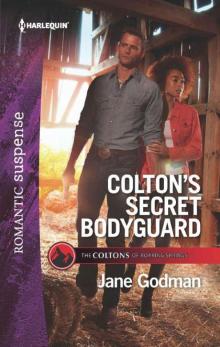 Colton's Secret Bodyguard (The Coltons 0f Roaring Springs Book 4)
Colton's Secret Bodyguard (The Coltons 0f Roaring Springs Book 4)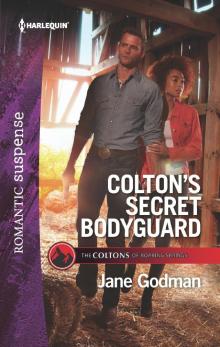 Colton's Secret Bodyguard
Colton's Secret Bodyguard Colton Manhunt (The Coltons 0f Mustang Valley Book 6)
Colton Manhunt (The Coltons 0f Mustang Valley Book 6)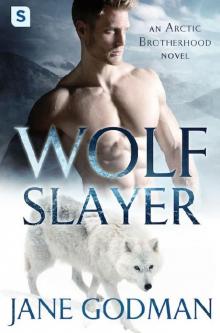 Wolf Slayer
Wolf Slayer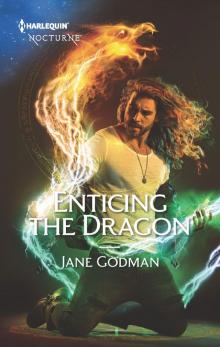 Enticing the Dragon
Enticing the Dragon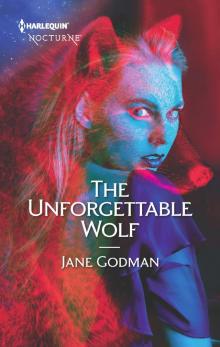 The Unforgettable Wolf
The Unforgettable Wolf Shadow Wolf: A Shifter Romance (Arctic Brotherhood, Book 2)
Shadow Wolf: A Shifter Romance (Arctic Brotherhood, Book 2) Harlequin E Shivers Box Set Volume 3: Valley of NightmaresHis to PossessThe Girl in BlueThe Ghosts of Cragera Bay
Harlequin E Shivers Box Set Volume 3: Valley of NightmaresHis to PossessThe Girl in BlueThe Ghosts of Cragera Bay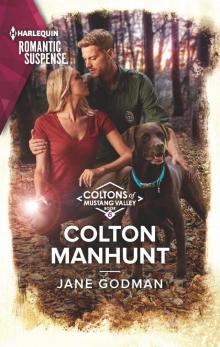 Colton Manhunt
Colton Manhunt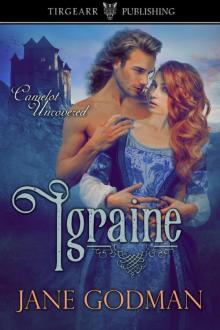 Igraine
Igraine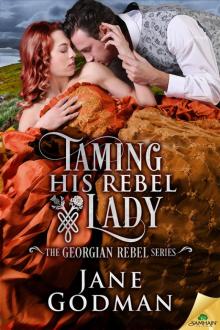 Taming His Rebel Lady
Taming His Rebel Lady Wolf Leader: A Shifter Romance (Arctic Brotherhood, Book 6)
Wolf Leader: A Shifter Romance (Arctic Brotherhood, Book 6)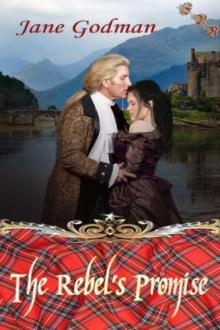 The Rebel's Promise
The Rebel's Promise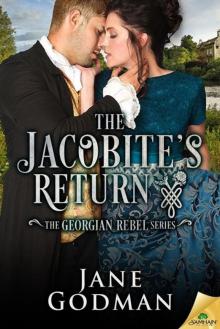 The Jacobite's Return (The Georgian Rebel Series)
The Jacobite's Return (The Georgian Rebel Series)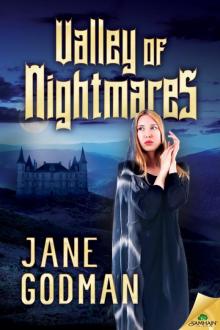 Valley of Nightmares
Valley of Nightmares Colton and the Single Mom
Colton and the Single Mom A Kiss for a Highlander
A Kiss for a Highlander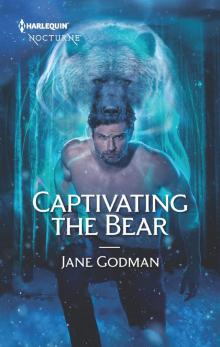 Captivating the Bear
Captivating the Bear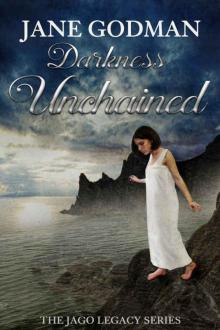 Darkness Unchained
Darkness Unchained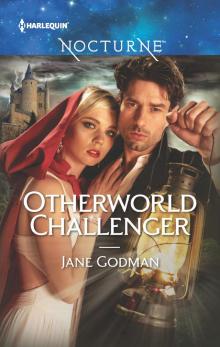 Otherworld Challenger
Otherworld Challenger Wolf Hunter
Wolf Hunter Ice Wolf: A Shifter Romance
Ice Wolf: A Shifter Romance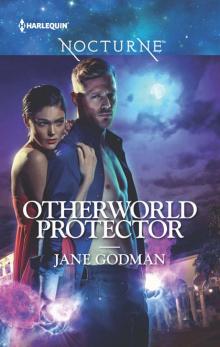 Otherworld Protector
Otherworld Protector Covert Kisses
Covert Kisses Storm Wolf
Storm Wolf The Soldier's Seduction
The Soldier's Seduction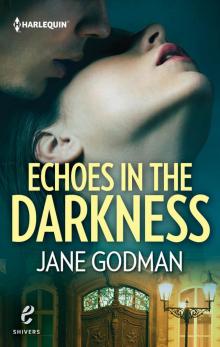 Echoes in the Darkness
Echoes in the Darkness